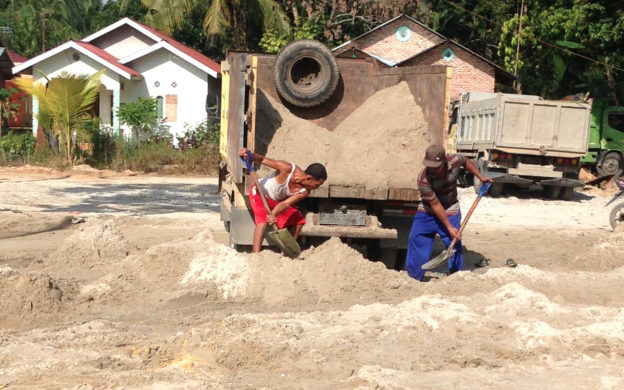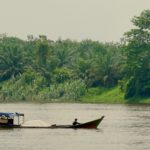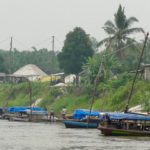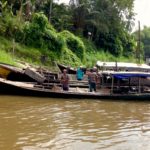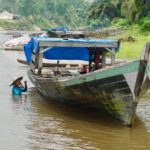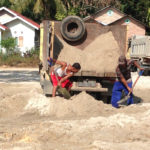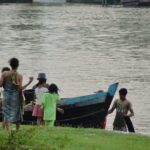Mrs. Sira has had 14 children. Over the years, Bethany and other SEEDS workers have treated them for fevers, intestinal diseases, broken bones, and other emergencies. It is difficult for the Sira family to feed so many on the small income common to sand dredging villages, so the healthcare program also provides aid in nutrition. Mrs. Sira was reluctant to seek any care at first, but gradually gained confidence in the team as SEEDS workers built trusting relationships with the parents and children.
When Bethany first met the Sira family, none of the children were immunized or attended school. Mrs. Sira was wary of immunizations, and saw little value in education. The family assumed their boys would grow up to work on the river, dredging sand, like their father. “Why should our kids go to school when they won’t need an education?” their mother asked.
Bethany suggested that an education could present alternatives for employment if any children did not want to dredge sand. She asked Mrs. Sira, “Will jobs on the river always be available? What can sand workers do when they grow too old for heavy physical labor?”
Healthcare goes beyond giving medical treatments, and extends to caring for the whole person and family. Today, all of Mrs. Sira’s school-age children go to school. They can now read. They can speak Indonesian in addition to their village language. A new range of possibilities is open to them so that they may, one day, provide for their own families’ nutrition and health.
SEEDS workers also reassured Mrs. Sira that the government immunization program is safe, and now her children are immunized. The Sira family, and the entire village, is growing stronger through lasting improvements in health and broadened opportunities. Bethany and her colleagues care for the whole person, so the whole family and community can enjoy a healthier future.

